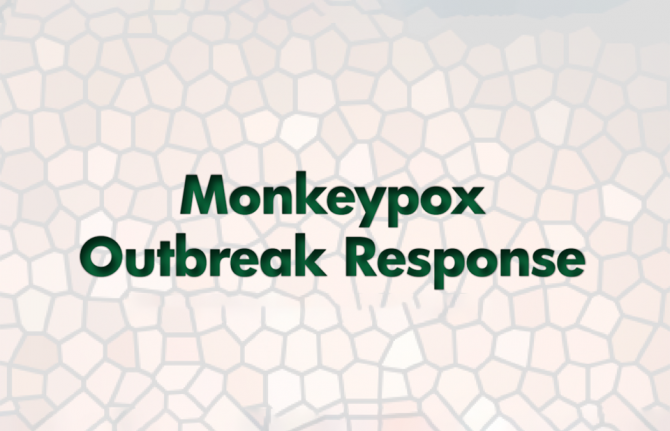

Update
UNAIDS Country Director in Nigeria shares how lessons from the AIDS response apply to the Monkeypox response
24 August 2022
24 August 2022 24 August 2022Dr Leo Zekeng, UNAIDS Country Director and Representative in Nigeria, has shared how lessons from the AIDS response apply to the Monkeypox response.
Dr Zekeng said:
“Monkeypox is endemic in Nigeria, and in recent weeks there has been a significant increase in suspected and confirmed cases. The Nigeria Center for Disease Control (NCDC)’s most recently published sitrep (7th August 2022) indicates that in 2022 there have been over 473 suspected Monkeypox cases (407 of which are since 30th May), of which have been 172 confirmed (151 of which are since 30th May). In the most recent weekly data published (1st to 7th August), 60 suspected cases were recorded in one week, out of which 15 were confirmed.
The Nigerian government, civil society organisations, development partners and the UN are working together to respond to the increase of suspected and confirmed Monkeypox cases in Nigeria. On 26th May 2022, the Nigeria Centre for Disease Control and Prevention (NCDC) activated a national multisectoral Emergency Operations Centre for Monkeypox to strengthen and coordinate ongoing response activities in-country while contributing to the global response.
Lessons we have learnt in the AIDS response apply to the Monkeypox response too. The Monkeypox response in Nigeria is being impacted by both social stigma and by global inequality in access to essential medicines, including vaccines.
Local staff in the most affected states have reported that stigma, connected with commentary from across the world blaming gay people for Monkeypox, is discouraging some people from seeking care. Local staff report that there have been situations of people being too afraid to access medical care because of stigma. State Health officials are working to ensure that staff at health clinics are sensitized to break down such stigma, and not to reinforce it. State Ministry of Health officials are also embarking on community sensitization on Monkeypox, emphasizing identification of symptoms, prevention, and the need to get tested.
The scarcity of key medicines is also holding back Nigeria's Monkeypox response. There is a need to support expansion of the supply of medicines, equipment, and sample collection materials. Unlike the US and EU, Nigeria does not have any supply of vaccines for Monkeypox. This brings amongst people in affected areas a sense of frustration that they have been left behind by the world. This inequality in access to vaccines and other key medicines must be urgently put right by sharing doses, sharing production rights and sharing know-how.
Support in efforts to challenge stigma, and in enabling access to essential medicines, are key to ensuring that everyone impacted by Monkeypox in Nigeria gets the care they need. Support for the response in Nigeria is essential for the success of the global response."
UNAIDS
The Joint United Nations Programme on HIV/AIDS (UNAIDS) leads and inspires the world to achieve its shared vision of zero new HIV infections, zero discrimination and zero AIDS-related deaths. UNAIDS unites the efforts of 11 UN organizations—UNHCR, UNICEF, WFP, UNDP, UNFPA, UNODC, UN Women, ILO, UNESCO, WHO and the World Bank—and works closely with global and national partners towards ending the AIDS epidemic by 2030 as part of the Sustainable Development Goals. Learn more at unaids.org and connect with us on Facebook, Twitter, Instagram and YouTube.



